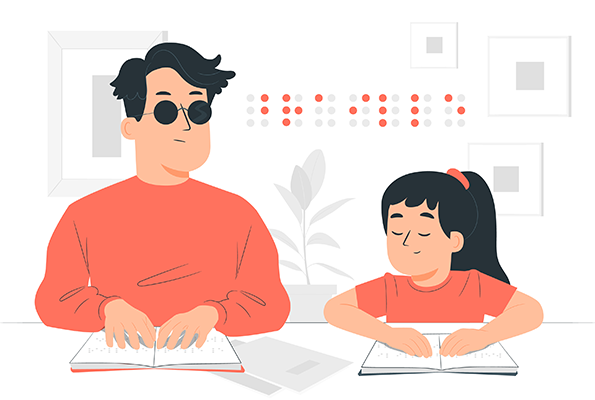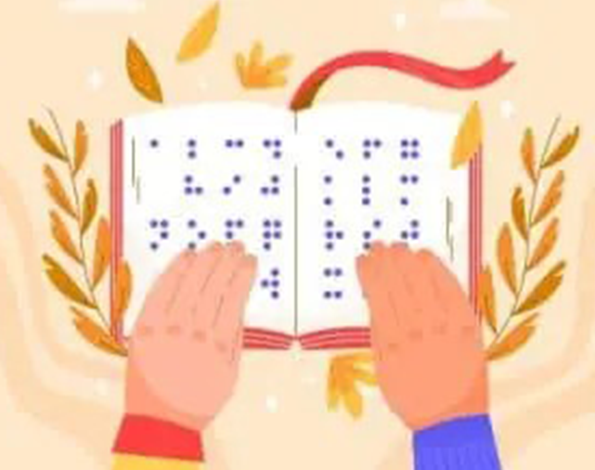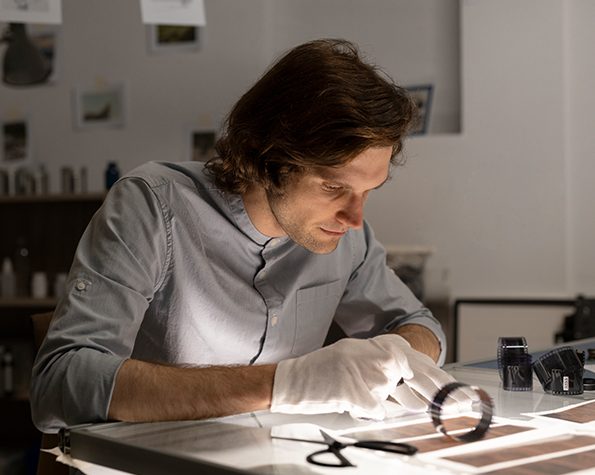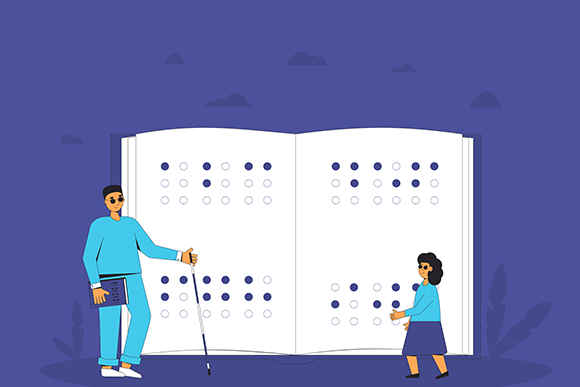
Rosetta Translation provides a full range of Braille translation services to companies and individuals in London and worldwide.
Rosetta Translation specialises in Braille translation services (also known as Braille transcription), and can accommodate most specific requests that you may have.
For a free instant quote, please contact us at any of our local offices in London, Shanghai, Detroit, Paris or Luxembourg.
Rosetta distinguishes itself by being one of very few translation agencies that hold both the prestigious ISO 9001:2015 certification and the DIN EN 15038 norm, the latter being the only norm that specifically addresses translation services. Our customers can therefore rest completely assured that the quality of our Braille translation services is consistently high.
Braille Translations can be certified, notarised and legalised to meet your exact requirements.


Braille is a system of writing enabling blind and partially-sighted individuals to read. It is a code of made up of raised dots, whereby a letter, number or punctuation mark is replaced by a combination of dots, of which there can be six in total, arranged in two columns of three dots. Commonly-occurring groups of letters can also be represented as one unit in some Braille codes, which helps to increase reading speed. The system was first devised by French schoolboy Louis Braille more than 200 years ago. Braille codes exist for other languages apart from English, as well as music, mathematics and science.
Braille is indirectly derived from the Latin alphabet, as in the original code the points were assigned depending on a letter’s position in the French alphabet. However when Braille was adapted for Russian, Greek, Hebrew, Arabic, Japanese and Chinese, for example, this order was no longer preserved.
Braille is a form of writing that enables those who are blind or partially sighted to read, of which there are approximately 12,000 readers in the UK. Braille was invented in 1824 by Louis Braille, a Frenchman who lost his sight as a result of a childhood accident. It can be read by touch, meaning that eyesight is not a requirement to understand it. Braille is composed of a series of raised dots that, when read together, can be understood as a certain language.
Blind or partially sighted people will often use audio as a means to understand something, however braille far outweighs audio in terms of capacity for understanding naturally quite visual things, such as scientific notation, maths equations and more complex formatted documents.
By providing Braille translation services to your clients means that you are also enabling those who are partially sighted or blind to be able to access your services, meaning greater equality, enabling them to have the same possibility of enjoyment, power and use of the written word.
Using braille on things like products, signs in shopping centres, in lifts and on doors to floors, means that those who are blind or partially sighted can navigate their surroundings with more ease than if the braille was not included, promoting their independence.
Braille is governed by very specific rules, such as different “signs” (like braille letters) that denote the starting, or ending, of speech, italicisation and opening brackets, for example. These can generally be put into a software however, what happens if there is a typo? Or something that would only be clear to a human having a look over your document, such as a heading, or an indented set of bullet points? This is where an expert’s eye is needed to clarify and make sure the braille is produced correctly. This is even more important as there are very few sighted people who can read braille to make sure that it is correct to the source, so the average person would be hard pushed to identify any errors or incorrect formatting.


Braille comes in two versions, Grade 1, also known as uncontracted braille, and Grade 2, also known as contracted braille. Grade 1 is a letter for letter transcription of the source text, where each letter corresponds to one set of raised dots on a standard 6-dot grid. It takes up considerably more space than its Latin-script counterpart and as such is mainly used for specific spellings on products or on signs. However, more and more its use has increased in order to encourage the uptake of those learning Braille.
Contracted Braille is what most readers of Braille go on to learn after acquiring Grade 1. This form of braille uses the same lettering as uncontracted braille, but many common words are written in an abbreviated form, meaning more information can be fitted into a smaller area, increasing the speed at which the reader can comprehend the same text. Words such as “and”, “the” and “with”, and common sounds, such as “ing”, “ch” and “ble” also come in contracted forms which help with the speed of comprehension.
Whether you need Grade 1 or Grade 2 Braille, or simply cannot make your mind up and would like to know more, we at Rosetta Translation can help you with your project. Send us a message using our quote request form and we will get back to you with all your options.






What is the UN French Language Day? On 20 March, we once again celebrate UN French Language Day, a global celebration of linguistic diversity and cultural exchange. Created by the United Nations in 2010, this day is to remind us …


© 2025 All Rights Reserved